Hippolyta
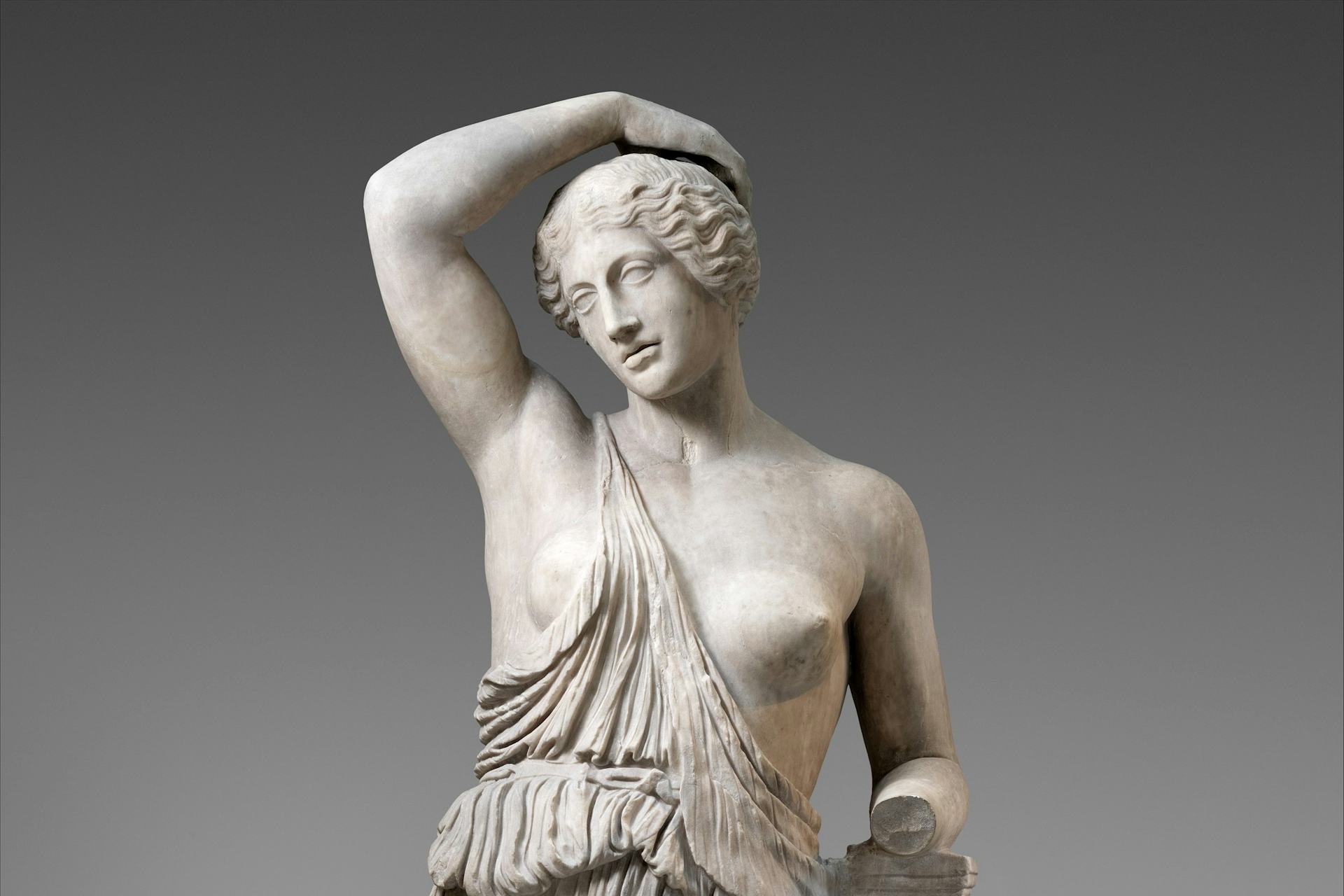
Roman statue of a wounded Amazon (1st or 2nd century CE)
The Metropolitan Museum of ArtPublic DomainOverview
Hippolyta, daughter of Ares and Otrera, was a queen of the Amazons. She was best known for her girdle, which was said to signify her supremacy among the Amazons. Unfortunately, the hero and strongman Heracles was ordered to steal this girdle for his ninth labor. When Hippolyta and the other warlike Amazons resisted, Heracles fought and killed many of them before taking the girdle by force.
In some versions of the myth, Hippolyta died at Heracles’ hands when the hero came for her girdle. But in other versions, she was carried off by Theseus, the king of Athens, which sparked a war between the Amazons and the Athenians.
Where did Hippolyta live?
Hippolyta was queen of the Amazons, a race of warrior women said to live in the region of the Black Sea. In ancient sources, the city of the Amazons was usually called Themiscyra.
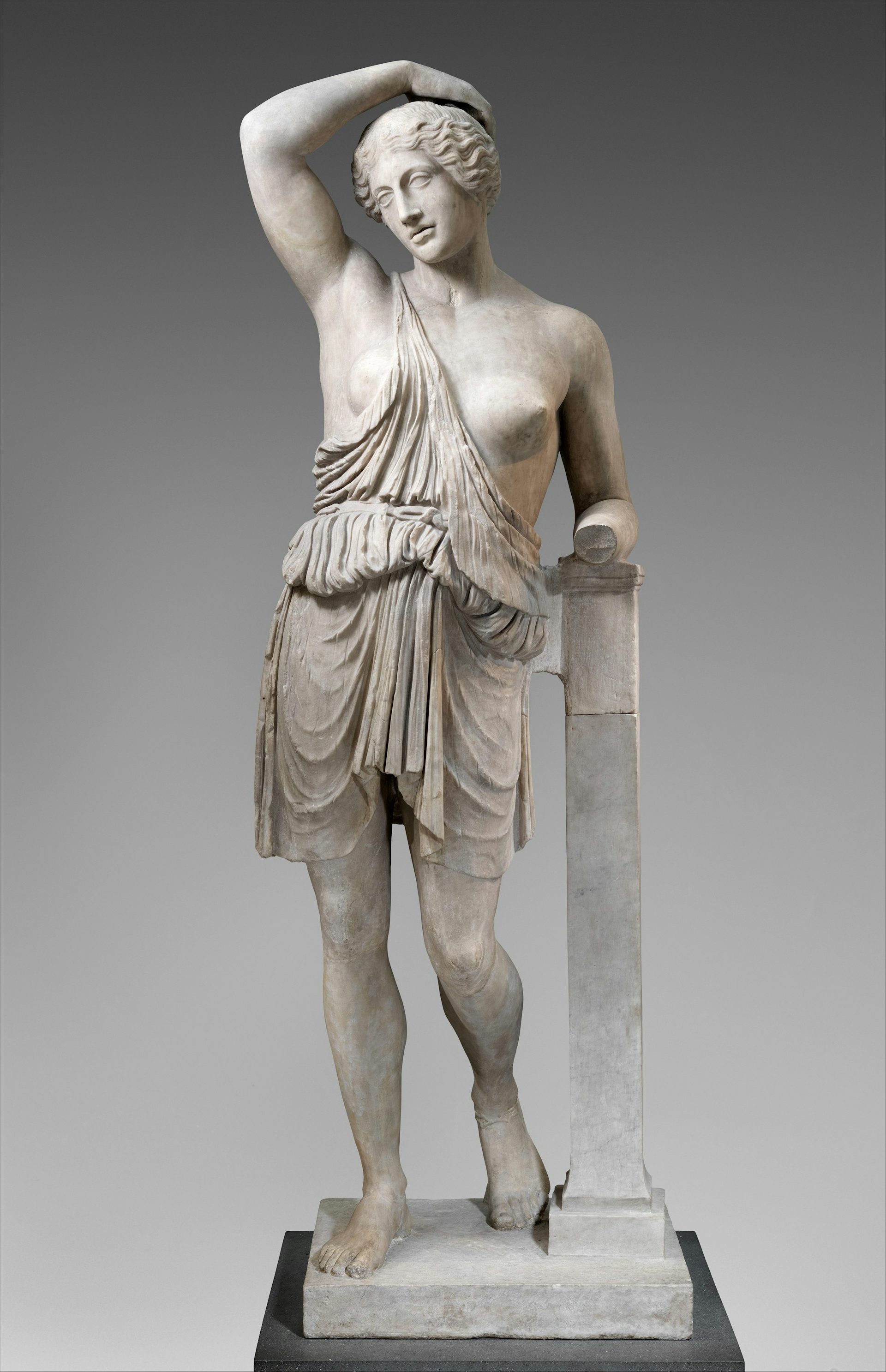
Roman statue of a wounded Amazon (1st or 2nd century CE)
The Metropolitan Museum of ArtPublic DomainWhom did Hippolyta marry?
In some traditions, Hippolyta was said to have married Theseus, the hero and king of Athens. According to other authorities, though, Theseus’ Amazon bride was named Antiope, not Hippolyta.
Whatever her name, the Amazon who married Theseus fared poorly (not unlike his other lovers). In the wake of her abduction, the Amazons followed their queen to Athens and made war with the city in an effort to get her back. Hippolyta (or Antiope) was killed in the struggle, though not before she bore Theseus a son named Hippolytus.
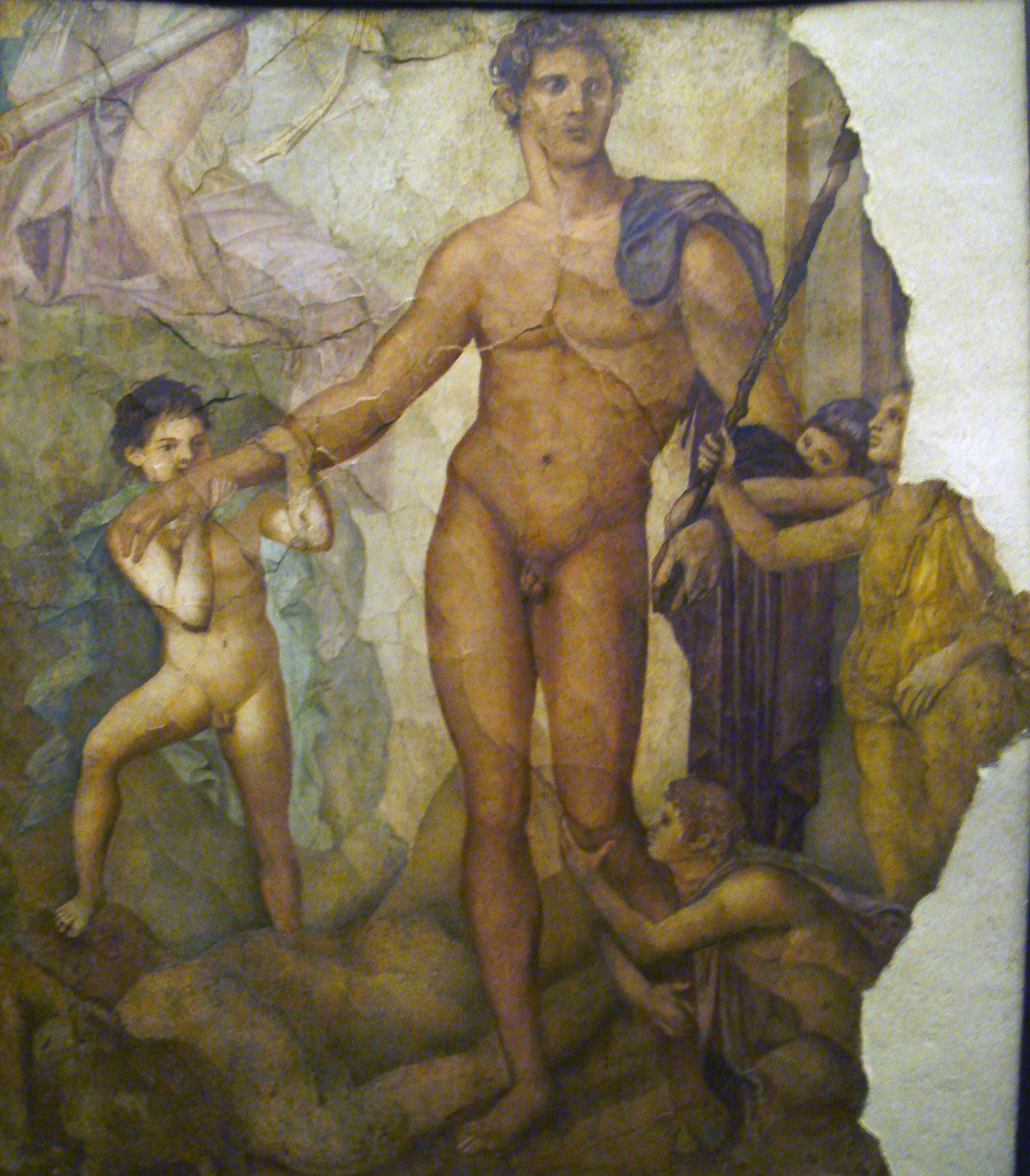
Roman fresco of Theseus from Herculaneum (ca. 45–79 CE)
Stefano BologniniCopyrightHow did Hippolyta die?
There were different versions of the myth of Hippolyta’s death. In some accounts, Hippolyta was killed by Heracles when he came to the land of the Amazons to steal her girdle. But in other accounts, Hippolyta was merely taken captive or ransomed.
In the tradition that made Hippolyta the Amazon consort of Theseus, she was killed during the war between Theseus and the Amazons, her former subjects (though in most accounts, it was not Hippolyta but Antiope who played this role). Some stories had Hippolyta make peace between Theseus and the Amazons, while in others Theseus himself killed Hippolyta when she attacked him for his infidelity.
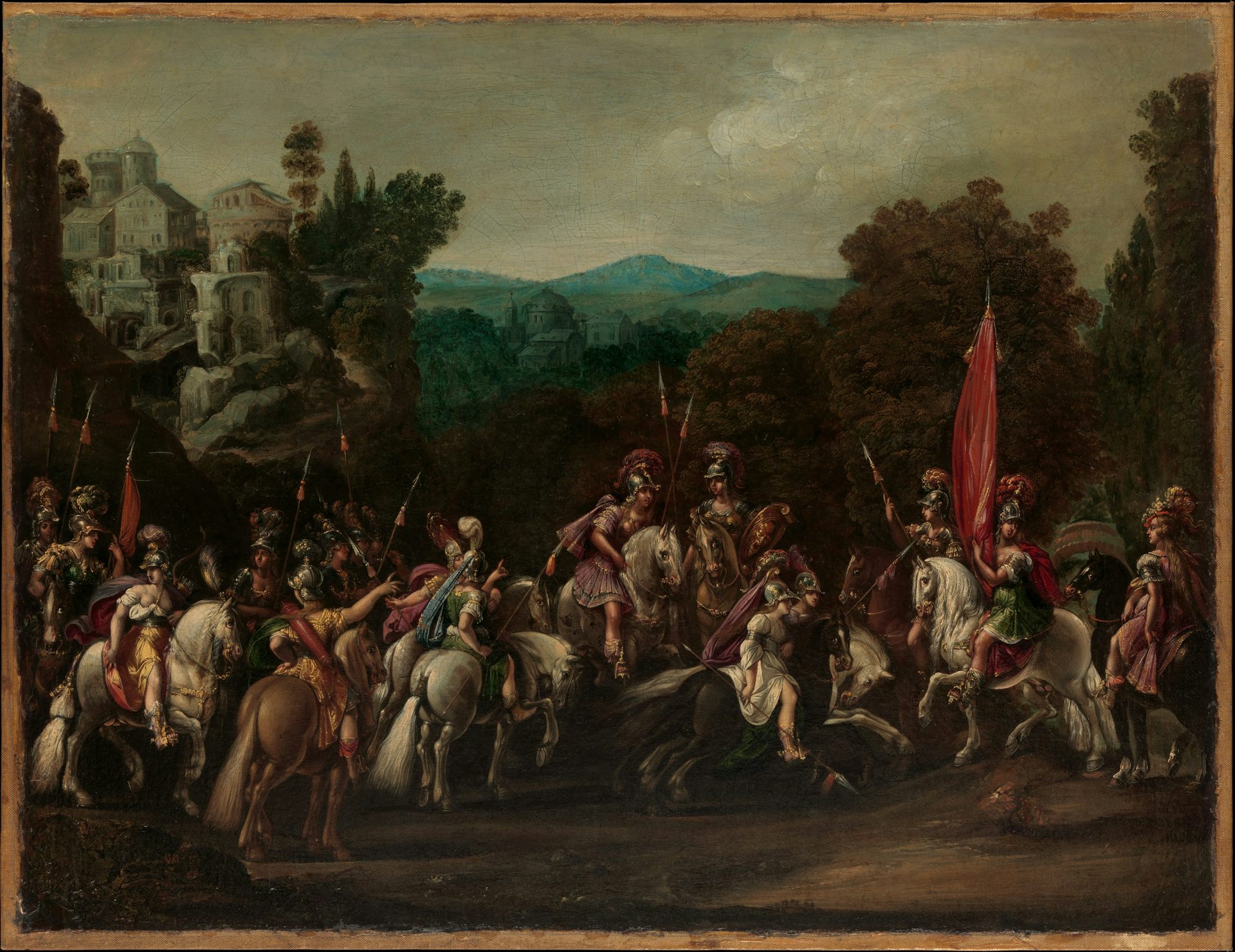
Departure of the Amazons by Claude Déruet (1620s)
The Metropolitan Museum of ArtPublic DomainHeracles Steals Hippolyta’s Girdle
As one of the Twelve Labors he was forced to perform for his cousin Eurystheus, Heracles was sent to steal the famous girdle worn by the Amazon queen Hippolyta. Not one to shirk from a challenge, Heracles made the arduous journey to the land of the Amazons.
Upon reaching his destination, Heracles initially sought to achieve his goal through diplomacy rather than violence. But Heracles’ enemy, the goddess Hera, would have none of this. She spread a rumor among the Amazons that Heracles was planning to abduct their queen. The Amazons attacked, and in the chaos that ensued, Heracles killed Hippolyta and stole her girdle.
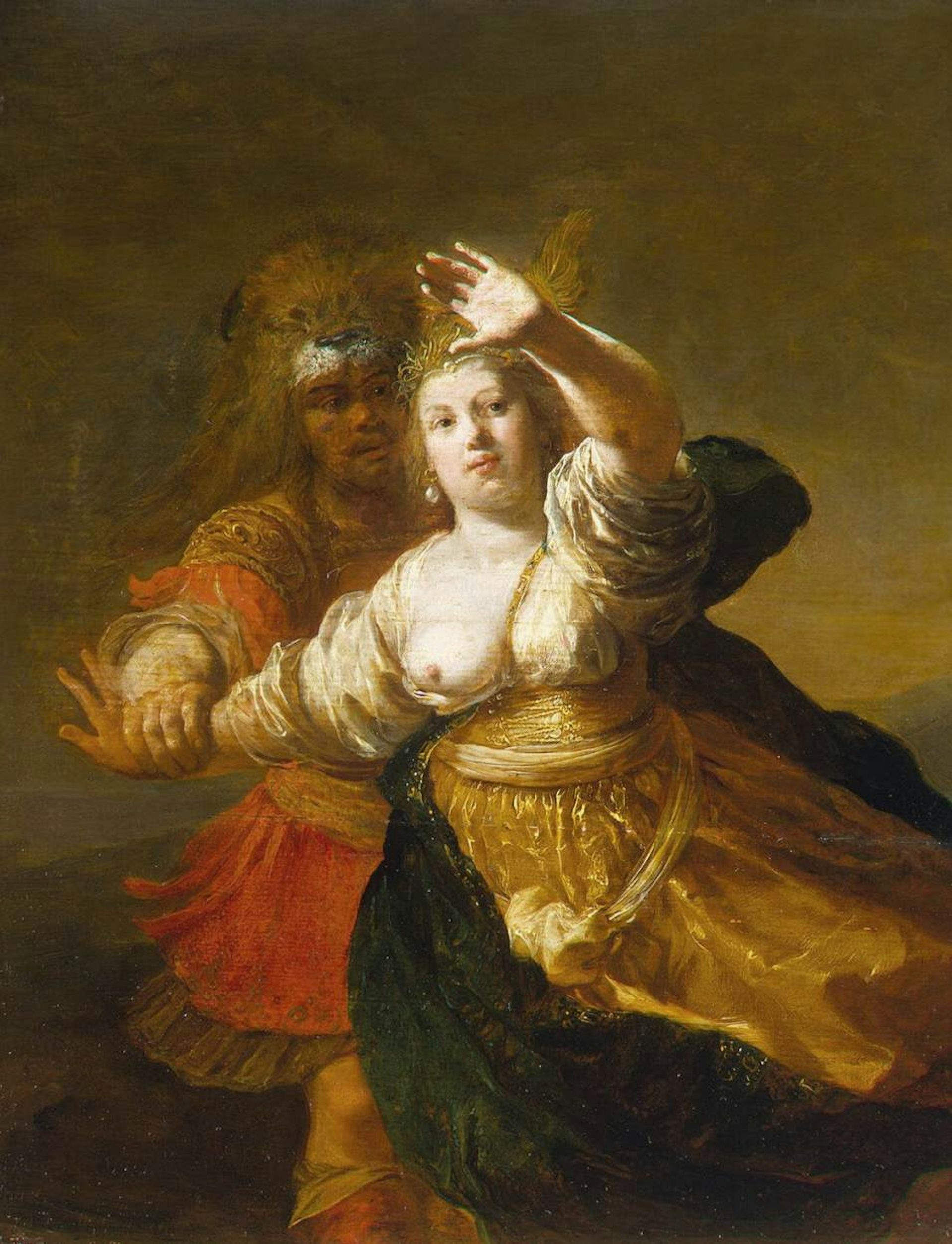
Hercules Obtaining the Girdle of Hippolyta by Nikolaus Knüpfer (1st half of the 17th century)
Hermitage Museum, St. PetersburgPublic DomainEtymology
The etymology of the name “Hippolyta” is fairly straightforward. It is made up of two elements: the Greek noun hippos, meaning “horse,” and the verb lyō, meaning “loosen” or “unleash.” Hippolyta’s name is thus stereotypically Amazonian, reflecting the warriors’ association with horsemanship (or, perhaps more aptly, horsewomanship).
Pronunciation
English
Greek
Hippolyta Ἱππολύτη Phonetic
IPA
[hi-POL-i-tuh] /hɪˈpɒl ɪˌtə/
Alternate Names
Though the Amazon queen whose girdle was taken by Heracles was always called Hippolyta, ancient sources disagreed on the name of the woman carried off by Theseus.[1] In some texts, Theseus’ captive was Hippolyta (presumably the same Hippolyta from the Heracles myth), but most sources named a different Amazon, Antiope (perhaps Hippolyta’s sister).[2] Still other sources claimed that the Amazon carried off by Theseus was named Melanippe[3] or Glauce.[4]
Attributes
Hippolyta was a queen of the Amazons, a tribe of warrior women usually thought to live in the city of Themiscyra on the south coast of the Black Sea. Her signature attribute was her girdle, sometimes known as the “Girdle of Ares.” According to Apollodorus, Hippolyta had been awarded this special girdle “in token of her superiority to all the rest.”[5] It was ultimately stolen by Heracles for his ninth labor.
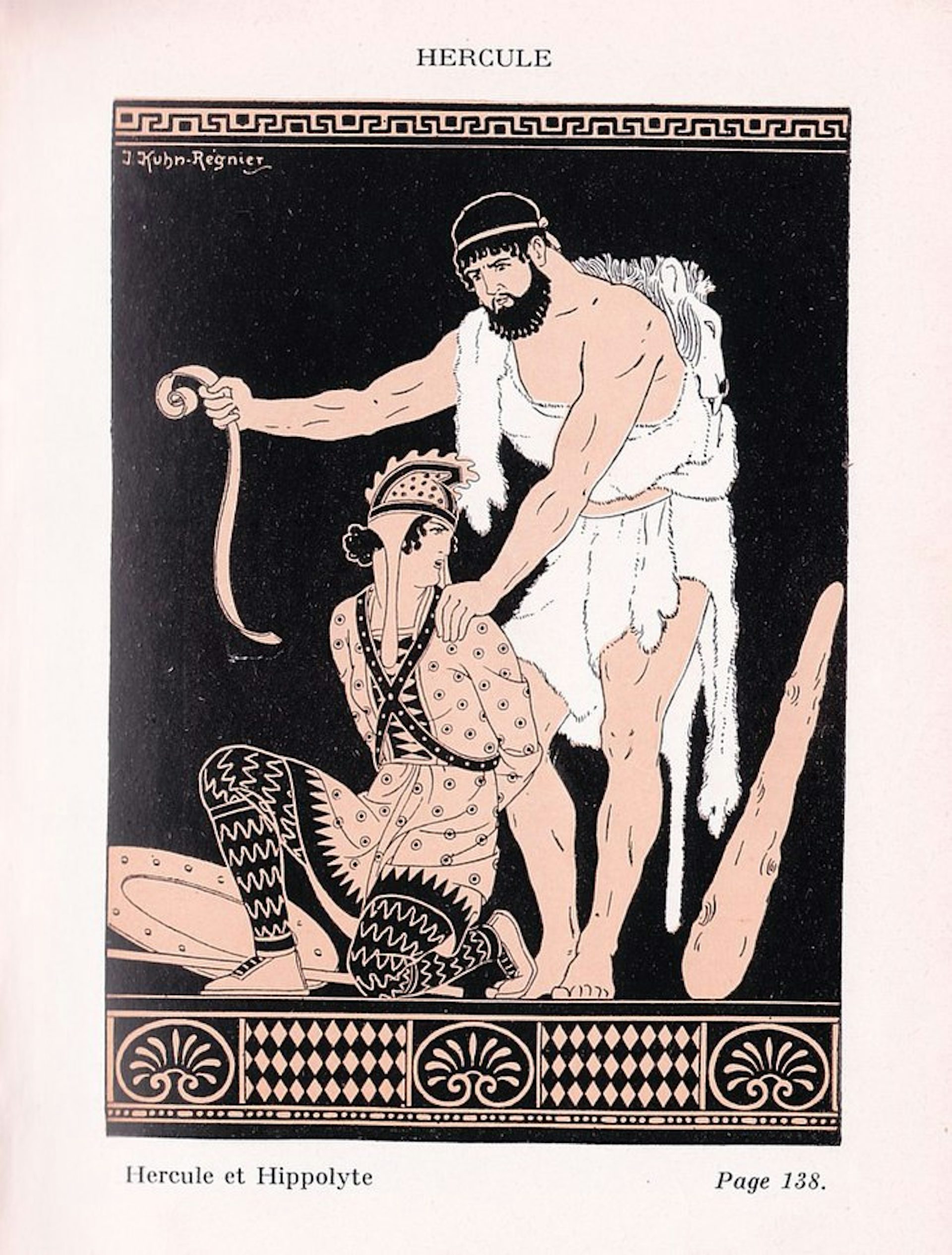
Illustration of Heracles stealing the girdle of Hippolyta, from Contes et légendes mythologiques by Joseph Kuhn-Régnier (1936).
Wikimedia CommonsPublic DomainFamily
Hippolyta was the daughter of Ares and the Amazon Otrera.[6] Her sisters may have included Antiope, Penthesilea, Melanippe, and Orithyia.
In some traditions, Hippolyta was taken captive by the Athenian Theseus after she lost her girdle to Heracles (though in other traditions it was Antiope, not Hippolyta, who was taken). Theseus soon fell in love with her and made her his wife. Together they had a son named Hippolytus (or Demophon, according to Pindar[7]).
According to the Roman scholar Servius, Hippolyta was also the mother of the Amazon Antiope.[8]
Mythology
The Ninth Labor of Heracles
Hippolyta’s girdle was the object of one of the Twelve Labors—tasks given to Heracles by the Mycenaean king Eurystheus. According to Apollodorus, Eurystheus’ daughter, Admete, wanted the girdle for herself.[9] Thus, Eurystheus sent Heracles to the land of the Amazons to fetch it for her.
There are a few different versions of the myth. Some authors simply report that Heracles killed Hippolyta and stole her girdle.[10] But others give a more detailed account. According to Apollodorus, Hippolyta was impressed by Heracles and was willing to give him the girdle without a fight. Indeed, she boarded Heracles’ ship in order to talk with the hero and hand over the prize.
But Hera, who hated Heracles, could not let him accomplish the ninth labor so easily. She disguised herself as one of the Amazons and spread a rumor that Heracles was planning to carry off their queen. In response, the Amazons immediately charged Heracles’ ship. When Heracles saw them, he assumed Hippolyta had betrayed him, so he killed her, stripped the girdle from her body, and sailed away.[11]
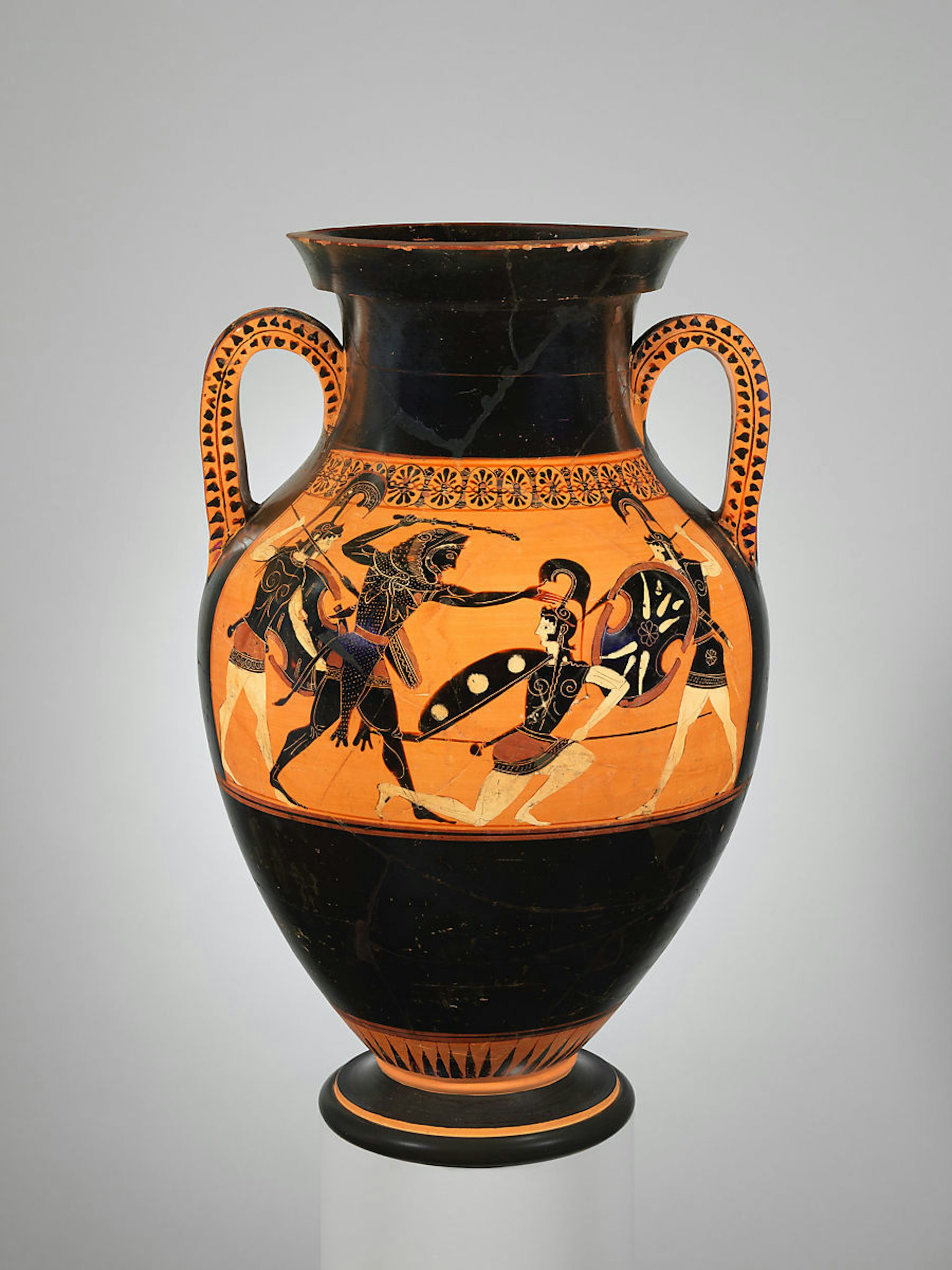
Amphora showing Heracles' battle with the Amazons. Attributed to the Bateman Group, ca. 530 BCE.
Metropolitan Museum of ArtPublic DomainIn another version, the Amazons were unwilling to hand over the belt and forced Heracles into a war. Heracles got the better of the Amazons and took several of them captive. In the end, he was given the girdle as a ransom for the Amazon Melanippe.[12]
Theseus and the Attic War
According to some sources, Hippolyta was later carried off by Theseus, the Athenian hero most famous for killing the Minotaur. She was either given to Theseus by Heracles, who took her captive after stealing her girdle, or else was taken during a separate adventure. The Amazons then invaded the region of Attica, which Theseus ruled from the city of Athens, to recover their queen in what was sometimes known as the “Attic War.”[13]
Some sources who name Hippolyta as Theseus’ prisoner go on to say that it was Hippolyta who ultimately made peace between the Amazons and the Athenians.[14] Others say that Theseus eventually left Hippolyta to marry the Cretan princess Phaedra; this led Hippolyta to angrily attack Theseus, and he killed her in response.[15] But in most sources, it was Antiope, not Hippolyta, who was carried off by Theseus and sparked the Attic War.

The Athenian Acropolis, the most ancient site of the city of Athens, said to have been ruled in mythical times by Theseus.
Christophe MeneboeufCC BY-SA 3.0In one final version of the myth, reported by Pausanias and ascribed to the people of Megara, it was Antiope who was carried off by Theseus, while Hippolyta (Antiope’s sister) led the Amazons against Athens to get her back.
After most of the Amazons were killed in the war, Hippolyta escaped to Megara (a city to the northwest of Athens) with a handful of survivors. There, heartbroken over the loss of so many of her people and despairing of ever returning home, she died of grief and was buried by the people of Megara.[16]
Penthesilea: Another Version of the Death of Hippolyta?
In another myth—probably known in some form since the time of Homer—Penthesilea came to help the Trojans fight the Greeks before ultimately being killed by Achilles.
But according to some sources, the reason Penthesilea came to Troy in the first place was that she had accidentally killed her sister Hippolyta while hunting: aiming her spear at a stag, Penthesilea missed and struck Hippolyta instead.[17] Whether this was the same Hippolyta who featured in the adventures of Heracles (and possibly Theseus) is unclear.
Worship
According to a local tradition, Hippolyta’s tomb (fashioned in the likeness of an Amazonian shield) was located in the Greek city of Megara.[18] This suggests that she received special honors or hero cult there (ancient tombs were often sites of this kind of worship).
Pop Culture
Hippolyta has featured in some modern adaptations of Greek mythology, including the 1990s television series Hercules: The Legendary Journeys and Xena: Warrior Princess. In DC’s Wonder Woman comics, Hippolyta is Wonder Woman’s aunt.